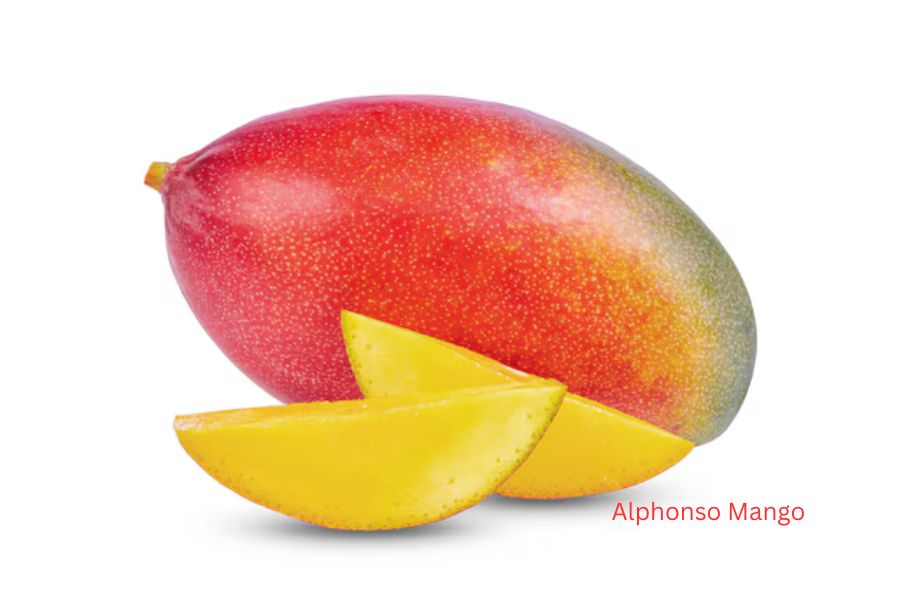The Alphonso mango, often referred to as the “King of Mangoes,” is a world-renowned variety prized for its rich, sweet flavor, vibrant color, and smooth, non-fibrous texture. Originating from India, particularly the Ratnagiri region in Maharashtra, Alphonso mangoes have captured the hearts of fruit lovers across the globe. This exquisite fruit not only has a royal reputation for its taste but also carries cultural and historical significance. In this article, we will delve into the fascinating world of Alphonso mangoes, exploring their origins, cultivation process, health benefits, and the reasons behind their global appeal.
The Origin and History of Alphonso Mango
The Alphonso mango traces its roots back to India, where mangoes have been cultivated for over 4,000 years. Alphonso mangoes are named after Afonso de Albuquerque, a Portuguese general and military figure who played a key role in establishing Portuguese colonial rule in India. During the 16th century, the Portuguese introduced grafting techniques to Indian farmers, which helped improve the quality of mangoes. Over time, this led to the development of the Alphonso mango, now considered one of the finest varieties in the world.
The Alphonso mango is primarily grown in the western part of India, particularly in the Ratnagiri and Sindhudurg districts of Maharashtra, as well as in parts of Goa and Gujarat. The unique climate and soil conditions in these coastal regions contribute to the fruit’s distinctive flavor and texture, making it a premium product that is sought after by mango connoisseurs everywhere.
Characteristics That Make Alphonso Mango Unique
1. Flavor Profile
The most striking feature of the Alphonso mango is its rich and complex flavor. Unlike other varieties, Alphonso mangoes are known for their sweet taste with subtle notes of citrus and a delicate floral aroma. This unique combination of flavors sets it apart from other types of mangoes, which may lack the same depth and richness. When ripe, Alphonso mangoes have a buttery texture that melts in your mouth, offering an unforgettable taste experience.
2. Appearance and Texture
Alphonso mangoes have a vibrant golden-yellow color with a slight blush of red, which makes them visually appealing. The skin is smooth and thin, and the fruit is relatively small to medium in size. What truly differentiates the Alphonso mango is its creamy, non-fibrous flesh. Many other mango varieties have fibrous pulp, which can be less enjoyable to eat, but Alphonso mangoes offer a silky texture that enhances their overall eating experience.
3. Aroma
Another distinguishing characteristic of Alphonso mangoes is their intoxicating fragrance. The fruit emits a sweet, floral scent that fills the air as soon as it ripens, making it not only a treat for the palate but also for the senses. This distinct aroma is one of the reasons why Alphonso mangoes are often used in the preparation of mango-based desserts, drinks, and culinary dishes.
Cultivation of Alphonso Mangoes
The cultivation of Alphonso mangoes is an intricate process that requires specific environmental conditions. The western coastal regions of India, especially Ratnagiri and Sindhudurg, provide the ideal combination of warm temperatures, abundant rainfall, and well-drained lateritic soil, which helps in producing high-quality fruit. The growing season for Alphonso mangoes typically begins in April and lasts until June, making it a seasonal delicacy that people eagerly wait for each year.
Mango trees take several years to mature and produce fruit, and the quality of the mango is influenced by the care given during its cultivation. Farmers must carefully manage water supply, soil quality, and pests to ensure that the fruit develops properly. Once the fruit is ripe, it is handpicked to prevent bruising and maintain its premium quality.
Given the labor-intensive nature of its cultivation and the specific growing conditions required, Alphonso mangoes are considered a luxury fruit and are often priced higher than other mango varieties. However, the experience of enjoying a perfectly ripened Alphonso mango is well worth the cost for those who appreciate its unique qualities.
The Global Appeal of Alphonso Mangoes
Although Alphonso mangoes are primarily grown in India, their appeal has transcended borders. The fruit is exported to various countries, including the United States, the United Kingdom, the Middle East, and Southeast Asia. Its international popularity stems from its superior taste and texture compared to other mango varieties.
In fact, the demand for Alphonso mangoes has become so great that they are often referred to as the “gold standard” of mangoes in international markets. Despite the challenges associated with exporting such a delicate fruit, including strict regulations and the short shelf life of ripe mangoes, Alphonso mangoes continue to enjoy immense popularity among mango lovers worldwide.
Nutritional Benefits of Alphonso Mango
In addition to its delicious flavor, the Alphonso mango is also packed with numerous health benefits. Mangoes, in general, are a rich source of essential vitamins, minerals, and antioxidants, making them a great addition to a healthy diet.
1. Rich in Vitamins
Alphonso mangoes are an excellent source of vitamin C, which helps boost the immune system, promote healthy skin, and improve wound healing. They are also high in vitamin A, which is essential for maintaining good vision and promoting healthy skin and mucous membranes.
2. Loaded with Antioxidants
Like many fruits, Alphonso mangoes are packed with antioxidants, such as beta-carotene and polyphenols, which help combat oxidative stress in the body. These antioxidants play a crucial role in preventing chronic diseases, reducing inflammation, and promoting overall health.
3. Good Source of Fiber
Alphonso mangoes are a good source of dietary fiber, which aids in digestion and helps prevent constipation. Including fiber-rich foods like mangoes in your diet can also help regulate blood sugar levels and lower cholesterol.
4. Low in Calories
Despite being sweet and delicious, Alphonso mangoes are relatively low in calories, making them a guilt-free treat. A medium-sized Alphonso mango contains around 100-150 calories, making it a great option for those looking to enjoy a healthy, natural snack.
Culinary Uses of Alphonso Mango
The versatility of Alphonso mangoes in the kitchen is another reason for their global appeal. In India, they are often enjoyed as fresh fruit, but they are also used in a variety of traditional dishes and desserts. Some popular uses of Alphonso mangoes include:
- Aamras: A popular Indian dessert made from pureed Alphonso mangoes, often served with flatbreads like puri.
- Mango Lassi: A refreshing yogurt-based drink made with ripe Alphonso mangoes, yogurt, and a hint of cardamom.
- Mango Sorbet: A light and refreshing dessert made by freezing pureed Alphonso mangoes, sugar, and lemon juice.
- Mango Salsa: A tangy and sweet salsa made with diced Alphonso mangoes, onions, cilantro, and lime juice, perfect for pairing with grilled meats or fish.
Additionally, Alphonso mangoes are used in ice creams, jams, jellies, and chutneys, adding their signature sweetness and flavor to a variety of culinary creations.
Alphonso Mango in Indian Culture
In India, mangoes hold a special place in both the culinary and cultural landscape, and the Alphonso mango is often considered a symbol of luxury and indulgence. Mangoes are referred to as the “king of fruits” in India, and the arrival of Alphonso mangoes marks the beginning of summer, a season eagerly awaited by mango enthusiasts.
Mangoes, including the Alphonso variety, are also featured prominently in Indian festivals, particularly during religious and cultural ceremonies. For instance, mango leaves are often used to decorate homes during festivals like Diwali, and mangoes themselves are offered as gifts or used in special dishes during celebrations.
Conclusion:
The Alphonso mango stands out as one of the most revered and sought-after fruits in the world. Its unparalleled flavor, smooth texture, and enticing aroma make it a true delicacy that people eagerly anticipate each season. With its rich history, cultural significance, and nutritional benefits, the Alphonso mango remains a symbol of luxury and indulgence. Whether enjoyed fresh, in a dessert, or as part of a savory dish, the Alphonso mango continues to captivate taste buds and elevate culinary experiences around the globe.







